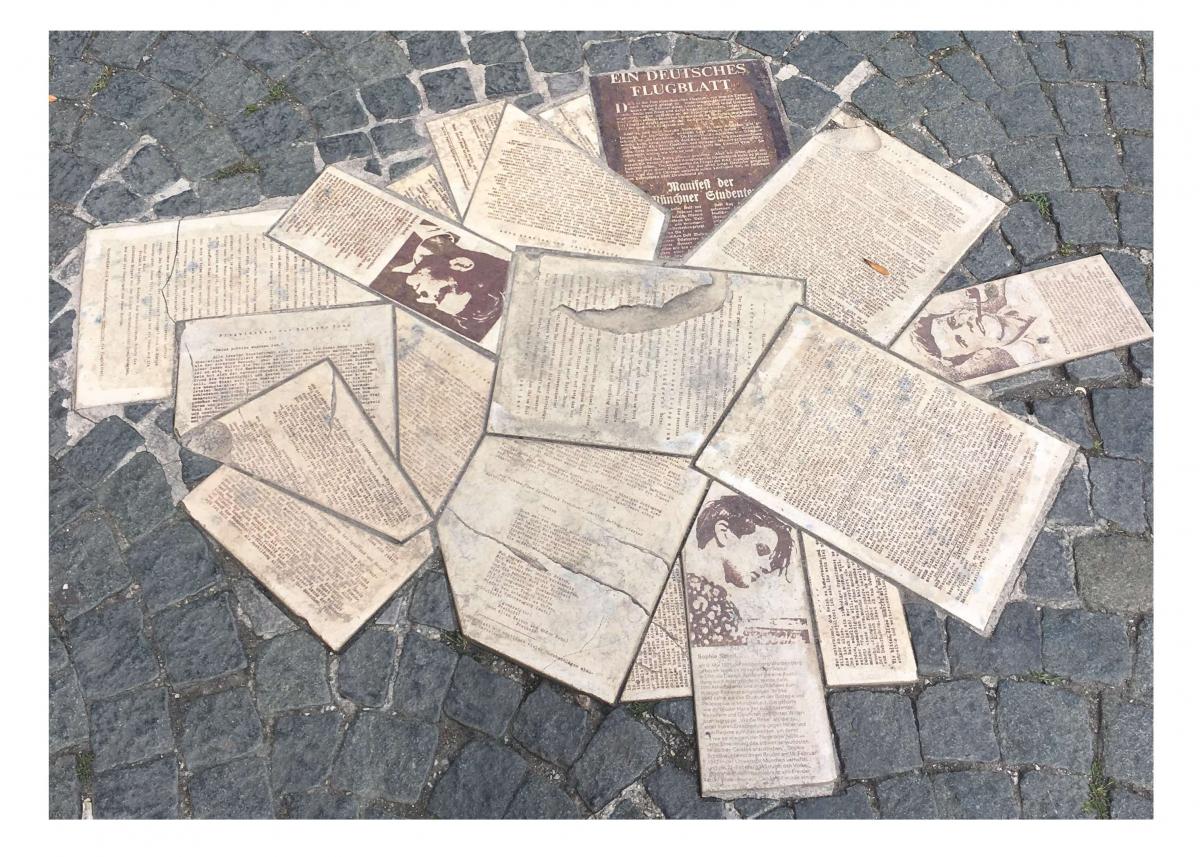
The French Flash Fiction Competition launched in December and ran until the end of March. During that time, we received more than four hundred entries across the two age categories. A huge well done to every who submitted a story to us – we were blown away by the imagination and linguistic inventiveness on display. We’re pleased to announce the winners today, and we’ll be featuring some of the runners up, highly commended, and commended stories on this blog in the coming weeks.
In the Years 7-11 category the winner is Yohann Godinho, in Year 10, and the runners up are Dexter Speed, in Year 8, and Ben Whiting in Year 10. The judges highly commended eleven entries: Davina Balakumar, Year 9; Georgia Clarke, Year 10; Isaac Timms, Year 9; Jamilya Bertram, Year 11; Joanna Kazantzidi, Year 7; Katy Marsh, Year 11; Megan Beach, Year 11; Ruby Watts, Year 10; Toby Greenwood, Year 8; Tom Clapham, Year 10; and Yuvraj Kambo, Year 9. A further eleven entries were commended: Aiden Politiek, Year 10; Carla Lubin, Year 7; Clémence Buffelard, Year 9; Hannah Uddin, Year 9; Harriet Preston, Year 9; Jonathan Stockill, Year 7; Kairav Singh, Year 9; Lara Hardy-Smith, Year 11; Riya Mistry, Year 9; Ryan Kwarteng, Year 7; and Silvia Rossi, Year 10.
The judges said: “In the younger age category we were absolutely spoilt for choice. So many of the stories demonstrated narrative flair and ingenuity, from the intertextual tales that offered a new take on familiar stories to the historical narratives, from quiet reflections on the state of the world to hard-hitting insights into the climate crisis. In the end, the winning story was one which married a refreshing stylistic simplicity with a moving sense of comfort and reassurance, perfectly encapsulating the current moment.”
In the Years 12-13 category, the winner is Zoe Prokopiou, in Year 12, and the runner up is Ella Hartley, in Year 12. Highly commended are: Allegra Stirling, Year 12; Bethan Mapes, Year 13; Blessing Verrall, Year 12; Emily Bell, Year 12; Harriet Townhill, Year 12; Ketsia-Patience Kasongo, Year 13; Lily Bamber, Year 12; and Nikita Jain, Year 13.
The judge said: “There were so many outstanding flash fiction entries in our Years 12-13 category this year. It was a pleasure to read them, and a real challenge to pick the best. I was very heartened by the amazing creativity and enthusiasm to express yourselves in a second language, conjuring up vivid feelings, colourful characters and sometimes whole worlds in just a few lines of text. In picking the winners I’ve paid more attention to the imagination on show than the strict grammatical accuracy, although the quality of French was very high throughout. I’ve also leaned a little more towards those entries that somehow managed in that tiny space to tell a whole story over those that were a little more like an essay or character portrait. And in choosing the overall winner, I was definitely influenced a bit by the fact that it managed to bring a tear to my eye in only ninety-four words. You’ll see why.”
Congratulations to all the winners, runners up, highly commended and commended entrants! The selection process was a tough one because so many of the stories we received had merit: we would like to underline the fact that writing a short story in another language is far from easy and that everyone who entered deserves to feel proud of their efforts.
Here are the two winning stories, and more entries will be featured over the weeks and months ahead…
Yohann’s story:
Je me suis réveillé. Je suis descendu les escaliers et ouvrit le frigo. Le frigo était vide. Je n’avais plus de lait ! Je suis parti de ma maison. Le soleil se a leva doucement au-dessus de l’horizon. Les trottoirs étaient déjà chauds, de prélasser à ses rayons. La brise tranquille a fait tiède. L’herbe a émis son parfum fraîchement coupé. Les arbres ont bruissé pendant que leurs résidents ailés se ont bavardé. C’était tous les signes d’espoir, qu’aujourd’hui serait un jour meilleur, plein de lait somptueux. Je suis entré dans le magasin. J’ai vu le lait.
Zoe’s story:
Elle a fermé la porte derrière elle et elle a respiré profondément. L’air frais a coulé dans ses poumons pour la première fois depuis un certain temps. Le ciel était bleu clair, peint avec des nuages blancs, et le soleil brillait. En commençant à marcher, elle a remarqué que le manque de gens dans la rue et le silence auxquels elle s’était habituée, avaient été remplacés par un nouveau bruit. Les trottoirs étaient pleins de gens qui souriaient. Elle pouvait sentir le soulagement commun de chaque personne que le monde revenait à la normale.








